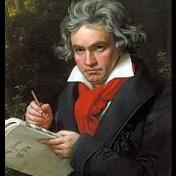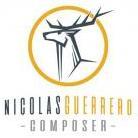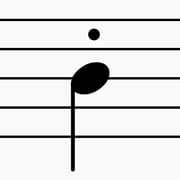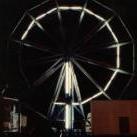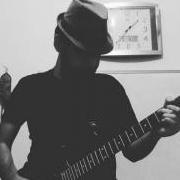Leaderboard
Popular Content
Showing content with the highest reputation on 06/25/2019 in Posts
-
Tomorrow is the longest day of the year on a Sunday in my country, at which time people burn a dummy witch per old tradition, and this afternoon, I just felt in the mood to finish this piano piece. I feel like it has a bit of summer in it. But I actually started on it back in April or so, then put it in the drawer, because I found something off-putting about it. I hope it sounds reasonable now.1 point
-
Here's a personal project of mine. Space is a wonder to me. The first man ever set his foot on the moon 50 years ago. Being a music composer, I wanted to do something for this anniversary. The project got so big and ambitious that I wanted to make a clip for it. And I got lucky when NASA announced that they made their footage copyright free. So I bought video editing software and made my first ever cut. I'm definitely not an editor but I had a lot of fun making this video. Here is the link to the music and video. https://youtu.be/EcvL36-x_Ec1 point
-
Concerto per violino, archi e bass continuo in b minor "Paradiso e inferno". written 20.06.19 - 25.06.19. Been some time since i wrote a concerto, so here is my summer contribution. Three part concerto written in the late italian school. I. Allegro - paradiso: 4/4 time, livly tempo and fugures, high in the register of the violin (Heaven it is!), the triumph key of d major. II. Adagio - cadere dalla grazia (fall from grace) 4/4 time. slow pace, rethorical use of rets, b, minor III. Vivace - inferno, 4/4 time, fast pace, slaming fugres, chromatic downward passages (going down to hell), b minor Please tell me what you think SimenN1 point
-
Hello, i'm new on this forum. I would like to share my lastest composition. It's the first movement of my 2nd piano concerto, composed in A minor. What do you think of it ?1 point
-
Hi all! I'm new here, and I really wish I'd discovered this community much sooner! I love classical music but, as a violist, my largest complaint has been the lack of stirring, cinematic viola concerti. Well, what's a composer to do? So here's my stab at a full-length viola concerto. I've named it Yfirsést (pronounced ih-ver-syest), the Icelandic word for "overlooked," and an all-too common feeling among violists. This is the first movement, and it resounds with the struggle of overcoming mediocrity and being seen for what you are. (I couldn't tell you what composer it sounds like, because to me, it sounds like me. 🙂) I appreciate your feedback, and especially taking the time to listen! I'll upload the second and third movements (along with the scores for all 3) later.1 point
-
A small test of Cinematic Studio sounds. Only the harp is from the other library.1 point
-
So a year ago, I had this idea of composing a suite that would represent different types of weather. I would call this suite Weather Music. But it wasn't until a few days ago that I actually started composing part of the suite. What part did I start composing you might ask? Well, I started composing probably the most intense part of the suite. That's right, I composed the part of the suite that is supposed to represent a storm. I am like exactly a quarter of the way through finishing the piece. But before I even started composing it, I was like: Full orchestra example: Beethoven here is really getting across the feel of a thunderstorm and the calm after the storm with the orchestra here. String orchestra example: Probably the most well known example of a storm represented in music. So well known, that it itself is often called Storm when played without the preceding 2 movements of Summer. There is no calm ending to the music at all. Piano example: Not directly a piece representing a storm unlike the previous 2 but it could very well be interpreted as stormy music because of the tempo and all the octaves. So I had a lot of pieces to go on as to how to get the feeling of a storm across. The only real questions were what key to have the piece in and what to compose the piece for. I eventually decided on piano solo because that is my area of expertise. I mean I am a very advanced pianist and I started composing in my intermediate years, mainly piano works. So it makes sense that composing for piano would be a natural thing for me because I know my abilities and limitations as a pianist. I don't directly know those same things for flute, violin, or any other instrument the way that I do for piano. The only way I know these things for other instruments is by studying the instruments and pieces written for those instruments. This is how come I know that out of all the possible piano-not piano duets that exist, the most balanced is the cello-piano duet. This is how come I know that a forte dynamic in the first octave is impossible on the flute. It has to do with pieces that I have listened to that are written for those instruments and other ways that I study the instruments. But no matter how good I get at say writing for flute, my piano composition skill is likely to always be superior because I get that skill directly from my knowledge of music notation, music theory, and 10 years of experience playing the piano, no studying piano pieces out of context of playing them required at all. Plus I have several other non-piano works that I am working on(namely my first symphony which might take me a year just to get the piano draft of it finished but that's okay) Anyway, back to my storm piece. That was quite the digression there but I just felt like I had to get it out. I decided to have it in the key of C minor because it is very easy for me to improvise in the key of C minor and simultaneously get it to sound very expressive. It is almost impossible for me to do that same thing for C major(which is partly why I mostly avoid composing in C major). And stormy is 1 feeling that is very natural to the key of C minor. In fact, just about any emotion that you can get out of a key is a natural emotion in C minor under certain conditions. Even happiness is a natural emotion for C minor. How I'm getting across the feeling of a storm So 1 thing that I noticed in common in nearly all pieces of music that I would consider to have a stormy character was octaves. But not just any old octaves. No, the octaves I noticed in stormy music were very fast and they were alternating. Very commonly, I would notice that almost the entire bass line is in octaves(as is the case with the Beethoven examples) or otherwise as in the Vivaldi example, the repeated notes in the bass would get across the same feel as octaves would and the octaves only really exist if you combine the bass and alto lines. So naturally, I took these octaves and applied them to the left hand part of my piece and the only time these octaves would be slow was in chords. Even when I state the Fate Motif, it isn't slow, despite being a rhythmic augmentation of the original motif just because of the fast tempo. I so far have done all these things to get across the feel of a storm: Keep up the momentum of the 16th notes except in certain spots to make the entire piece sound dramatic Use a minor key because the same drama would be hard to get across in a major key, even taking everything else into consideration Use scalar passages with unpredictable leaps to represent the strong wind by giving a chaotic feel to what would otherwise be a normal scale. Use diminished 7ths more often than dominant 7ths just to add more drama Use the Fate Motif as a bass line during some of the scalar passages to represent the lightning flash. Use chord progressions to represent the thunder that comes after the lightning(this is what I mean when I say that the octaves are slow in chords) Have the melody in the right hand outside of scalar passages be staccato to represent the rainfall Under the staccato melody, use fast octaves to give a sense of turbulence, which is very fitting for a storm Use stark dynamic contrast between passages representing thunder and lightning and passages representing rain Creschendo to a loud dynamic Suddenly get quieter Presto tempo(mine is actually on the slow end of Presto, at 160 BPM) Here is the piece as it is so far. Sound ends at about 1:25 in the MP3 just so you know. Does it sound stormy to you with all the octaves, 16th notes, and the Presto tempo?1 point
-
1 point
-
I feel a happy emotion to this, even when the minor keys are exposed. But not just any happiness. It feels kind of like a person is skipping around. I love it. And the C major is so expressive here. I have tried to get my C major to sound expressive and all I get is what sounds like happy boredom, sort of like this piece here: If I want the piece to both be expressive and have C as the tonic note, I usually resort to 1 thing, using the key of C minor. I find that with C minor, I can get just about any possible emotion across relatively easily like this: Anger - Just use more forte dynamics and diminished 7ths, faster tempo further reinforces the emotion but isn't necessary Sadness - Keep it slow Mysteriousness - Slow and in low octaves Nocturnal peacefulness - Slow and in high octaves Happiness - Fast tempo and off beat notes(I find that, if I just displace a note by say an eighth from where I would typically put it, and I put more dynamic emphasis on weak beats, I can get C minor to sound happy)1 point
-
I don't think I have heard such a key like A major be so sad. Usually when I think of an emotion that is typical for A major I think of this: That's right, I think of the key of A major as having a bouncy feel to it, which staccato just reinforces. A good example of this is Rondo Alla Turka by Mozart. But your piece has a grim sadness more typical of a minor key like E minor, despite it being in a major key. I myself have never gotten a major key to feel sad. I have gotten it to feel nocturnal, but not sad. If I were to think of a piece that has the sadness that your piece has, I would think of this one: How did you get a major key to sound so sad? I have only been able to do that with minor keys by keeping things slow. If I keep things slow in a major key, it starts to sound nocturnal to my ears. But sadness, not really if I just slow the tempo of the major key piece. So clearly, there is more to it than just tempo for major keys to sound sad unlike how with minor keys you can just slow things down to get a sad feeling.1 point
-
Woodwinds are pretty diverse and complex, so forgive me if this answer is too generalized. By themselves, woodwinds blended together create this lush, watery, woodsy sound that you don't get from the strings. Unfortunately, they're easily drowned out by the rest of the orchestra, so you have to choose your woodwind moments wisely. As you know, they're much more versatile than their wind cousins the brass, so woodwinds are great for playing those fast harmonies or countermelodies against the strings. However, what I like best about the woodwinds is their different voices! The flute is light and airy, the oboe resonant and mournful, the clarinet liquid and graceful, the bassoon (such a versatile instrument!) deep and chocolatey in its lower register, wispy and yearning in its upper register. If you were to take a melody and have it repeated by the different strings (violin, viola, cello, bass), your piece would be boring. But take that same melody and have it repeated by the different woodwinds, and each tells a different story! Concerning woodwinds cues, I feel your pain. My head doesn't naturally "hear" the woodwinds in its music, so when composing I have to pause every now and then and ask myself "Has every instrument been given a chance?" Some of the richest moments in my pieces have been when I did this and passed a lush melody on to the woodwind section! Like much of music, it's an art that gets better the more you do it. I hope this helps!1 point
-
I like the crescendos, the intro melody along with the sus vib notes from the cellos sounds epic. Definitely has a classical feel to it around the 2 min marker.1 point
-
@SilverWolf Thanks for the feedback! Here is the second movement, entitled 'Andante religioso.' It's mournful and redemptive, with hymn-like themes and swelling anthems. At times tender, at times dissonant, it continues the struggle to not be "overlooked."1 point
-
I like that it has a lot of varied articulations in it, a few of the chords I would have done differently (not sure of the name but it sounds like stacked m chords).1 point
-
On the joy of coffee, the composer's best friend. This is for a small jazz band of piano, bass, drums, violin, clarinet, trumpet and trombone. I may have posted this before but I don't remember and I don't see it anywhere, so ... here it is. 😊1 point
-
This is quite an epic piece. very good.. perhaps some gentle EQ'ing on some tracks to clarify what the different instruments are doing. The low mids are quite dense ( bordering on getting muddy). Perhaps some of the strings play an octave higher, or voices. The movement and orchestration are QUITE GOOD..1 point
-
Focusing in on the section around the one minute mark, the counterpoint between the upper and lower voices was a little strained when there are leaps to and away power chords in the upper register (perfect fourths) in an unrelated key.1 point
-
I just wrote a simple guitar riff and I thought it would be nice if I just put it over some videos I recorded from the forest and lake in my neighborhood. So, I made a complete dark ambient song and made this music video for that.1 point
-
I recently completed a flute concerto that will be premiering in the fall. A few things I can share off the top of my head: I think it's unwise to write the piano part and orchestral part as two separate entities/two separate sessions. One thing I learned while writing was that you need to give the soloist time to breathe. Both in the literal sense, and also from the standpoint of the audience. The ear tires from listening to the same type of sound after awhile, so the best way to keep the ear interested is to change up the sound. When you listen to great concertos (of any instrument), there will be sections heavy on the solist, sections where the soloist and orchestra play together as a "unit", and then purely orchestral sections. Those breaks are important, for everyone involved. Write to the strengths of your soloist. If it's you, then write to your own strengths! My solist has a very good technical capacity, and also has a very strong tone in the lower register, so I was sure to make it technically challenging and wasn't afraid to write some passages down low. Some people are better at shaping long musical phrases, some are better at extended techniques, it's good to sort of "tailor" the music to what they're good at. If you personally aren't the soloist, don't be afraid to consult them during the process. Maybe some things are too challenging for them, or maybe they have suggestions on how to make something flow better. You'll learn a lot along the way! Speaking of register, another reason I don't think it's wise to write the piano and orchestra parts separately is precisely because of orchestration. You want to leave space in the orchestra to let the soloist shine through. In my case, this meant not having a lot of flute parts (as in the ones sitting in the orchestra), and generally avoiding countermelodies/accompanying figures in the same register as the solo. In your case, you have the entire piano at your fingers, which is both a pro and a con. The pro being it's a lot more flexible in terms of register, the con being you can easily go crazy and write thick passages that will come out muddy if the whole orchestra is playing something too contrary. I think writing them separately would be too confusing, you might think while writing the piano part "oh, I should do this in the orchestra", but most likely forget it by the time you get to writing the orchestra. These are all of course tip more on technical things and less about the actual act of writing music. As the others said, try everything and see what sticks. Don't overthink things, and of course have fun with it!1 point
-
...or something like that. Fantasy game music I wrote, anyway. Let me know what you think.1 point
-
My fat fingers did the page refresh shortcut in the middle of composing my comment. So here we try again. But at least I got the B. That's pretty close, isn't it? Thanks! Oh, no no no, I don't know more about harps than you do if you're already trying to figure out pedals and stuff. My harp knowledge is on the level of Monty Python's How To Do It lesson on how to play the flute. As for the key, I probably gave more thought to my pairing of socks this morning than I did to the key of this thing, and I probably should have transposed the whole thing up to F if knew what I was doing, to get a whole lot of naturals. I'm no good at writing for real, actual instruments played by living, breathing humans. Thanks. You're totally right. This is but an unambitious little doodle that came out of some nerd'ing. I have modes popping up all the time in my music, but I rarely immerse myself completely in one sound. I think if the piece had a real length, it should definitely go beyond. So would you. However, the thing is... that I... kind of overwrote the project file, which I used for tinkering. It was an oversight. I know... I'm sorry. But I'm not feeling up for a transcription by ear now. With audio online, I guess it's now an undead piece. I tell myself that I can listen to the mp3 to extract ideas for the future. Oops, I forgot the #4. Oops, I wrote in a bad key. Oops, I deleted my comment. Oops, I deleted my piece. I'm on a streak! I better block my bedroom door tonight.1 point



